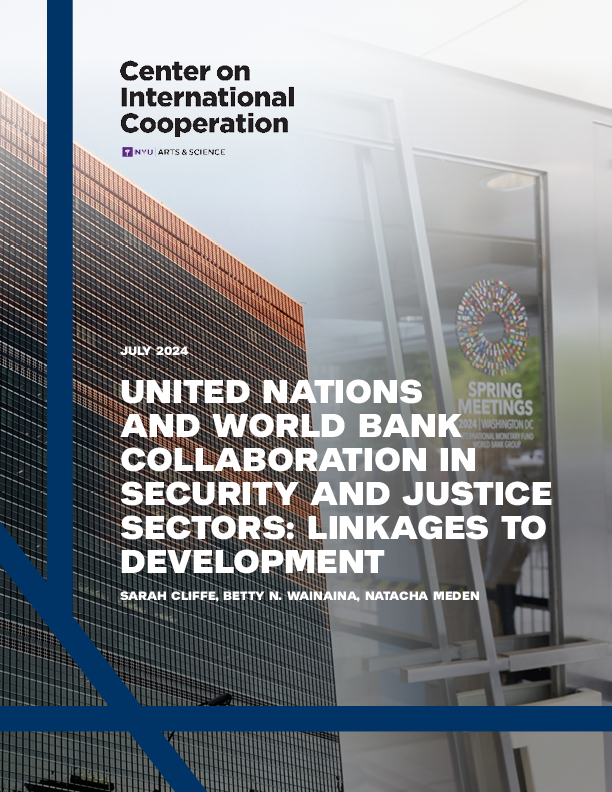The links between security and development cannot be said enough. Effective and accountable security and justice institutions are essential to anchor peace and accelerate development but only if these institutions are people-centered, inclusive, accountable, and based on respect for human rights and the rule of law.
Over 600 million people are living in countries that are considered politically estranged today. Many of these countries have faced and continue to face security challenges that have been significant drivers of grievance and contestation. Addressing governance challenges in the security and justice sectors in such circumstances is critical at a moment when all the remaining United Nations (UN) multidimensional peacekeeping operations have been requested to initiate or intensify transition planning. These transitions are taking place in countries and regions where the nature of violence and conflict is changing—becoming more protracted, involving transnational non-state armed actors, amid geo-political contestations and proxy wars.
This study highlights that despite the long history of UN and World Bank engagement in the security and justice sectors, there has not been much strategic collaboration. Indeed, while there have been a few very compelling examples of joint work such as public expenditure reviews in the security and justice sectors in Liberia or Somalia, joint diagnostics and knowledge products as well as disarmament, demobilization, and reintegration (DDR) operations in a few countries, or strategically sequenced mutually reinforcing interventions for example in the case of The Gambia, these instances are the exception rather than the norm.
The study finds that there is a lot more that can be done to promote a more systematic and strategic partnership between the UN and the World Bank in security and justice sector engagements. This could range from information sharing, joint analysis where necessary, reinforcing each other’s messaging, and the coordination and harmonization of efforts to leverage respective convening platforms and relationships. Strengthening this work is a challenge that would require engagement from the most senior UN and World Bank leadership as it would involve a cultural transformation and fresh understanding of organizational and staff incentives. Included in this report are eight joint and individual recommendations ranging from the cultural or strategic, to the more technical for policymakers across both multilateral institutions to implement and bring into their organizations.
This new study provides a high-level document to inform both United Nations and World Bank leadership on future options for their work on Justice and Security Sector Reform and Governance (SJSR/G), both within each organization and in partnership with one another.
